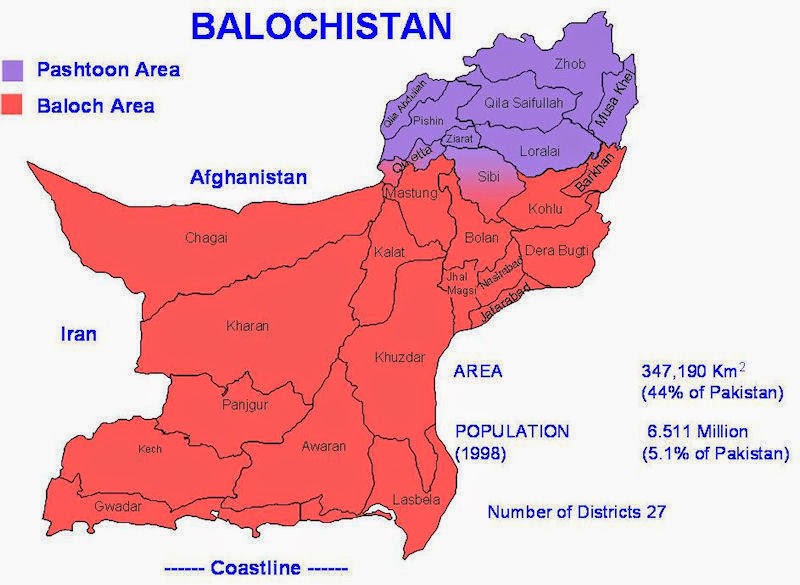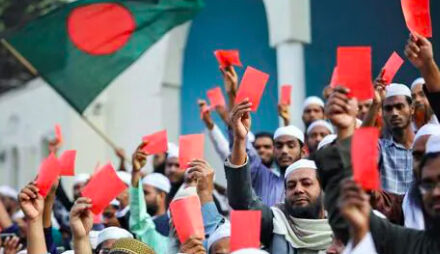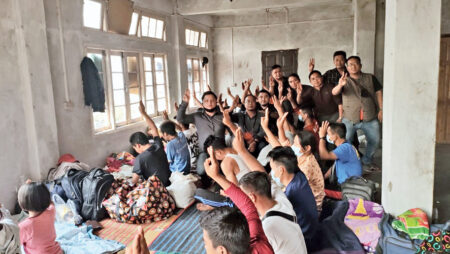MANTRAYA ANALYSIS#68: 20 JULY 2023
Pakistan’s deepening woes in Balochistan
SHANTHIE MARIET D’SOUZA & BIBHU PRASAD ROUTRAY
Abstract
Pakistan is facing an uphill task in Balochistan. The Tehreek-e-Taliban Pakistan (TTP) is expanding its influence into the restive province and trying to make common cause with the Baloch insurgents against the Pakistani state and China. Islamabad’s pleas for cooperation to rein in the TTP, allegedly based in Afghanistan, have been ignored by the Afghan Taliban. Neither counter-terrorism cooperation with Iran nor a full-scale military operation against the TTP is likely to deliver results.
Introduction
On Wednesday, 12 July 2023, 12 soldiers of the Pakistan army were killed in two separate attacks in Balochistan province. Nine soldiers were killed when five heavily armed Islamist militants stormed an army base in the Zhob town of Sui district in the province. All five militants were killed. The militants first hurled grenades into a military mess at the base and then engaged in a gunbattle lasting several hours. A newly founded jihadist group called Tehreek-e-Jihad Pakistan (TJP) claimed responsibility for the assault, saying in a statement it would release pictures and videos of its fighters who took part. The TJP, according to the experts, is either a “cover name” for the TTP or one of its affiliated outfits.

TTP has stepped up its attacks in Balochistan since revoking a ceasefire agreement with Islamabad in late 2022. Assaults have included the bombing of a mosque in the northwestern city of Peshawar, an act which killed more than 100 people in January 2023. Previously, the group claimed responsibility for 12 attacks in Balochistan’s Pashtun region in 2022, exclusive of the four months from May to September when Afghanistan’s Taliban rulers brokered a cease-fire deal between the TTP and Islamabad. Now, according to the TTP, in just the first three months of 2023, five attacks have been carried out in Quetta, two in Pishin, and one in Balochistan’s Killa Abdullah districts.
Attacks have targeted security forces in northern parts of the Province, traditionally considered Pashtun-majority areas that were previously relatively free of insurgency. These areas are closer to the border with Afghanistan and also in close proximity to tribal districts such as South Waziristan. The TTP’s violence is now regularly reported from Khyber Pakhtunkhwa as well as the Pashtun belt of Balochistan. Targets, which previously focused on poorly armed police personnel, now include the Frontier Corps (FC) and the Army.
The TTP’s Strategy
TTP, which has long had influence in the Pashtun belt of Balochistan, is now trying to expand its sway into the Baloch areas, as well. For this purpose, it has reportedly split the province into two operational regions. While the Baloch-majority area is part of its Kalat-Makran chapter, the Pakhtun-dominated parts are under the operational control of the Zhob chapter. In recent months, TTP has even been releasing propaganda videos in Balochi to attract the attention of the Balochis. Though some videos highlight the deprivation faced by the people of the province, an important theme is the suspected “disappearing” of individuals by security agencies. The latter subject touches a raw spot because forced abductions and subsequent disappearances of Baloch people by FC and Counter-Terrorism Department (CTD) personnel are of concern. According to the Human Rights Council of Balochistan, 247 people have disappeared even as just 226 people have been killed in actions by the FC and CTD personnel between January and June 2023.
TTP is also trying to make common cause with the existing Baloch separatist groups. Since July 2022, four Baloch separatist groups—led by Aslam Baloch, Mazar Baloch, Akram Baloch, and Asim Baloch—have joined its ranks, helping it to expand its organizational presence for the first time into ethnic Baloch areas of Makran, Quetta, and Kalat districts.
In addition to the instability that TTP’s violence wreaks in Balochistan, Pakistan is further concerned by the threat the militant group now poses to the China-Pakistan Economic Corridor (CPEC). The western route of CPEC passes through the Pashtun-dominated parts of the province, and the Pakistan military’s special security division now protects the CPEC’s assets and infrastructure.
A blind eye from Afghanistan
As long as the Afghan Taliban settled in Balochistan, the area remained largely free from militant violence. Afghan Taliban ran its madrassas and mosques in the area, as well as its command-and-control centres. Taliban Supreme Leader Mawlawi Hibatullah Akhundzada taught for more than 10 years in a religious seminary in Kuchlak. Likewise, Abdul Hakim Ishaqzai, the Taliban regime’s chief justice, reportedly ran a madrassa in Quetta city.
However, post-August 2021, TTP emerged as the sole force in the region, as the Afghan Taliban shifted back into Afghanistan. The Haqqani network did try to mediate a peace agreement between Islamabad and TTP, which provided a temporary respite from insurgent violence, but the deal collapsed amid charges and counter-accusations. Since then, Pakistan has been pressuring Afghan Taliban to rein in TTP, a request that has been rebuffed (not least by the latter).
Legacy TTP weakness stemming from extensive military operations against the group in 2014 has been overcome by changed circumstances. Another military operation of a similar scale is no longer an option because TTP cadres can simply cross over into Afghanistan for protection. Without Afghan Taliban’s cooperation, any local successes against TTP could only be temporary.
On 17 July, the 258th Corps Commanders’ Conference of the Pakistan military, held at the General Headquarters in Rawalpindi, assessed that “the sanctuaries and liberty of action available to the terrorists of the proscribed TTP and other groups of that ilk in a neighbouring country and the availability of latest weapons to the terrorists” are the major factors impacting the security of Pakistan. Previously, on 14 July, the military had urged the Taliban to “not allow the use of its soil to perpetrate terror against any country, in the real sense and in line with commitments made in the Doha agreement”. It had also warned, “Such attacks are intolerable and would elicit an effective response from the security forces of Pakistan.”
CT Cooperation with Iran
The Pakistan military appears to be more successful in establishing formal cooperation with Iran, which potentially could aid its efforts against the Baloch insurgents and also TTP’s activities in the Baloch-inhabited areas of the province. Army chief General Asim Munir visited Tehran on 14-15 July 2013 and met with the Iranian army’s chief of staff, General Mohammad Hossein Bagheri. Both countries reached an agreement to step up cooperation and intelligence sharing and take “effective actions” to prevent militant attacks.
This was not altogether unexpected. Cross-border attacks by Baloch insurgents have led to increased friction between Iran and Pakistan. Tehran is keen to gain control over those, for which Pakistani cooperation is essential. Munir also met Major General Hossein Salami, the commander of the Islamic Revolution Guards Corps (IRGC), who was quoted as having stated, “We consider Pakistan’s security as our security and by expanding interactions, cooperation and joint actions, we will end the existence of terrorist groups and establish stable security in the shared border areas.”
The real push for this season of cooperation may have to come from China, which is eager to ensure safety for the CPEC projects by ending terror attacks along the Pakistan-Iran border. On 30 May 2023, China hosted a trilateral CT and regional security consultation with Pakistan and Iran. Although no details of the discussions were made public, it is apparent that the meeting involved shared concerns regarding security in Balochistan.
Tail Piece
Without cooperation from Afghan Taliban, Pakistan faces a substantial task in preventing TTP from expanding in Balochistan. The group’s avowed anti-China outlook will invariably affect the execution of the CPEC projects. It thus is possible that Islamabad will lean upon Beijing to pressure Afghan Taliban to rein in TTP. According to news reports, China has already asked Pakistan and Afghan Taliban to come up with a workable solution to ensure that TTP is brought back to the discussion table. So far, Kabul has shown no interest in acceding to the request. However, even if it does deliver on that front, any peace with TTP will likely be temporary, as in past instances. Pakistan’s woes derive from its own internal contradictions and in Balochistan are bound to grow more serious in the coming months.
(Dr. Shanthie Mariet D’Souza is Founder & President, Mantraya. Dr. Bibhu Prasad Routray is the Director of Mantraya. This analysis has been published as part of Mantraya’s ongoing “Islamic State in South Asia”, “Mapping Terror & Insurgent Networks”, and “Fragility, Conflict, and Peace Building” projects. All Mantraya publications are peer-reviewed.)
To read previous Mantraya Analyses CLICK HERE


